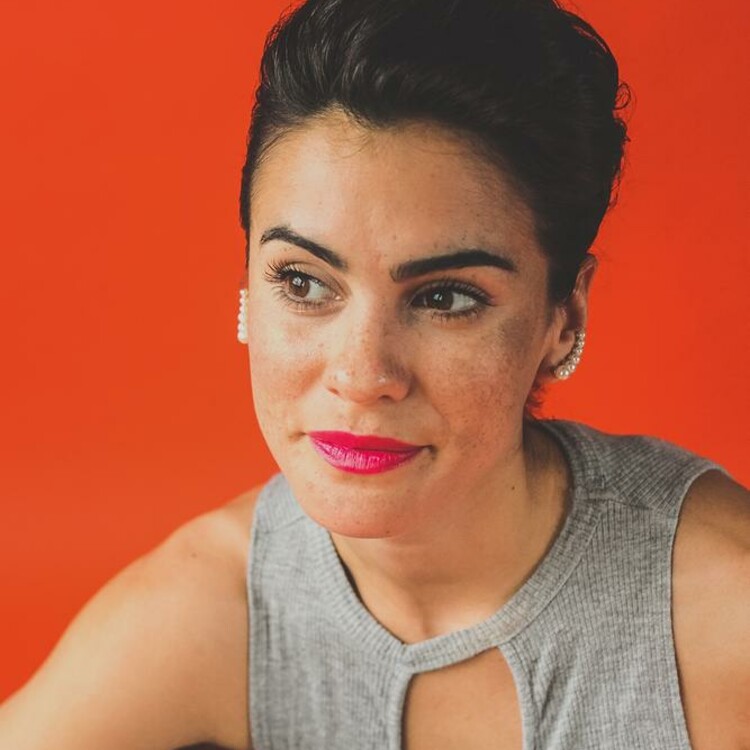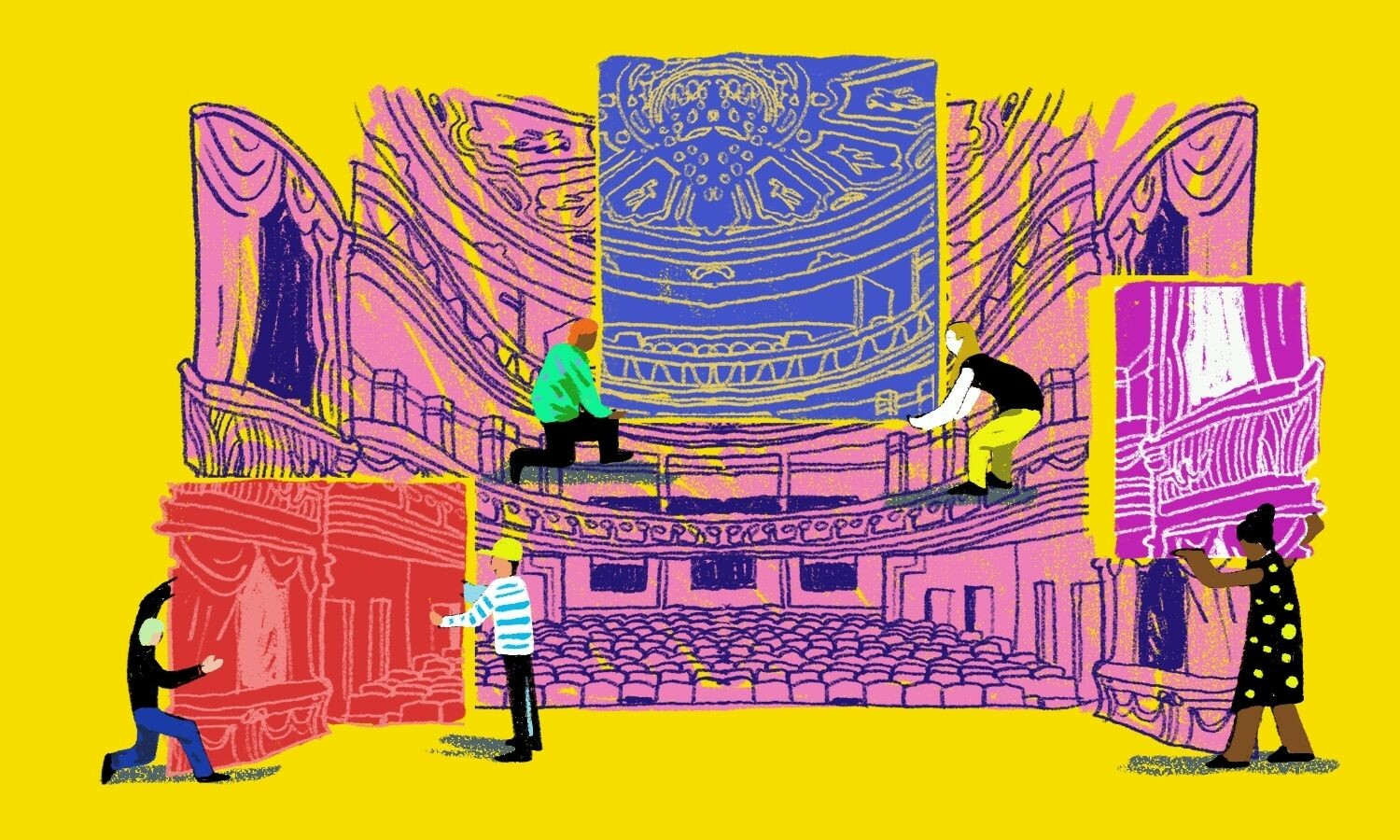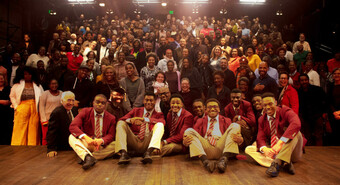Dear Student of the American Theatre,
Instead of packing my bags traveling the country as an actor in the regional theatre, as I have done for the past ten years or so, I have traveled back from the future on the breath of your collective dreams to share how the story you are writing now has a good ending. As you look at the limited but ever-present moment, you can see that you are not in this perfect future yet, but you will be.
This message is for you. You, who are about to graduate high school and begin your education at the dream theatre school of your choice. You, who have just graduated with your bachelor’s or master’s and are getting ready to enter the acting world in a new way. You, a student of the arts outside elitist institutions. You, a student of the world and student of your self. Thank you for learning about being an actor and yearning to be a part of this often problematic industry. Thank you for continuing to engage in the arts, even as the art form struggles to define itself. This letter comes to you from the future and it comes with good news: You are creating a profession where more people will be helped, healed, and humanized.
I speak from the future, but will you travel with me for a brief moment into your past? Can you recall where in your body you experienced that feeling of boundless joy when you stepped on stage for the first time? Perhaps the memory is almost faint in the aftermath of this year’s racial reckoning, a worldwide pandemic, and the ghost lights on countless stages continuing to only shine on the comfortable parts of our industry. But in the future you build, the stage lights look dim on your brilliant skin. Because you didn’t just survive, you learned to thrive.
It is in the history books my students read in the future that, as social justice doula, Black feminist practitioner, and writer Lutze Segu puts it, in “a post-genocidal society built on racial capitalism” you somehow learned to demand more and you changed the world. You started by clicking in and out of Zoom rehearsals and classes and performances. Some of you went out of your way to tell those who had forgotten how to learn to be patient with themselves; this cost you something but you did it anyway. You gained a deep understanding that what you think and what you say as a student—especially if you are a part of the Black, Indigenous, people of color communities (aka the global majority)—is just as powerful and important as the words and thoughts of the teachers and mentors who might disagree with you. In the midst of racial hate, death, and chaos, you showed up, called in, called out, and organized. Those who chose not to were seen, and that part is in the books too.
I know that in 2021, the professional theatre had a lot of catching up to do in order to prepare itself for the amazing student-warriors like you—students who demanded representation, equity, the dismantling of systems of oppression, and harmful narratives created under harmful circumstances. In the future you build, you have become the mentors and leaders of the world, and your education is as multifaceted and inclusive as the people you teach. I know that in your present, much of the learning and responsibility has fallen on your shoulders, as confused adults look to you for inspiration. That happens less in the future you made, but we are still working on it. It seems adults do not yet understand that change need not only be on the shoulders of the next generation. How is someone supposed to rebuild the world without any of the structural power?
But in the future you build, the stage lights look dim on your brilliant skin. Because you didn’t just survive, you learned to thrive.
In the future you build, resources and power are shared equitably in all directions. Rehearsal rooms are filled with better critical thinkers—art makers who understand the direct social impact of storytelling. These rooms you made, by demanding the industry become more equitable, have changed the way older generations understand people, helped us unpack individualism, and brought nuance back into conversations. As you know from your current day to day, out of all the things capitalism takes from artists on a daily basis, the one that hurts the creative process as much as inequality is the time actors are given to create. In the future, you walk into a rehearsal room and know you have at least five weeks to create art in whatever regional theatre production you are working on. You know this time will be followed by a week of technical rehearsals. That’s six weeks working on one play, not four weeks from the first rehearsal until opening. What I love about this process and room is that there are no more eight-show weeks, the shows run longer, actors are valued and compensated fairly, and everyone has an understudy.
The future you build used the We See You White American Theater demands and the Black Theatre Matters Bill as a starting point for change. This means no ten-out-of-twelves, and your work schedule gives you two days off a week: one to rest and the other to do laundry and recover from the hard work that is dismantling white-supremacist ideologies, which is still working itself out of many systems. In the future you build, the Actor’s Equity Association has a new name and has reckoned with its white supremacist foundations.
















Comments
The article is just the start of the conversation—we want to know what you think about this subject, too! HowlRound is a space for knowledge-sharing, and we welcome spirited, thoughtful, and on-topic dialogue. Find our full comments policy here
This is divine nourishment. Thank you.
We read this in my 2021-2022 advanced high school theatre class of juniors and seniors, and they really connected with it. They asked that I post a comment to let you know. Thank you for sharing!